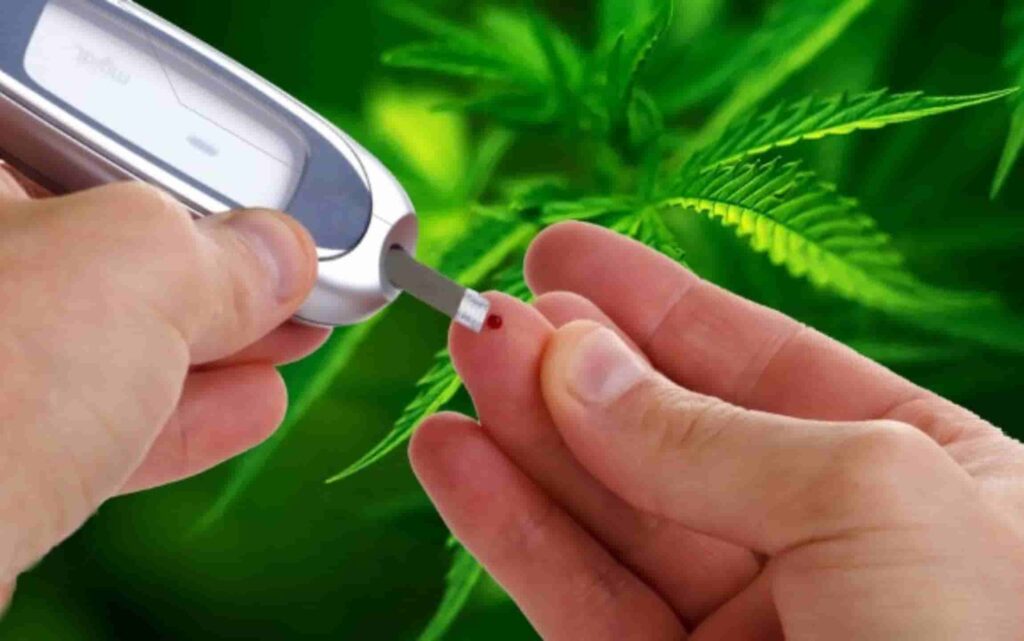The Impact of Medical Cannabis on Diabetes: A Comprehensive Exploration
Diabetes is a chronic medical condition affecting millions of people worldwide, characterized by elevated blood glucose levels due to the body’s inability to produce or effectively use insulin. As researchers delve into alternative treatment options, medical cannabis has emerged as a topic of interest for its potential therapeutic effects on diabetes. This article explores the relationship between medical cannabis and diabetes, examining the current state of research, potential benefits, and the challenges associated with integrating cannabis into diabetes management.
Understanding Diabetes
Before delving into the effects of medical cannabis on diabetes, it’s crucial to understand the two primary types of diabetes: Type 1 and Type 2.
Type 1 diabetes is an autoimmune condition where the immune system mistakenly attacks and destroys insulin-producing beta cells in the pancreas. This type usually manifests early in life, and individuals with Type 1 diabetes require insulin injections for survival.
Type 2 diabetes, on the other hand, is characterized by insulin resistance, where the body’s cells do not respond adequately to insulin. Over time, the pancreas may lose its ability to produce enough insulin, leading to elevated blood sugar levels. Lifestyle factors, genetics, and obesity are commonly associated with Type 2 diabetes.
Medical Cannabis and Diabetes: An Evolving Landscape
Research on the impact of medical cannabis on diabetes is still in its early stages, and while some studies suggest potential benefits, the overall scientific consensus remains inconclusive.
- Cannabinoids and Insulin Sensitivity: One of the key areas of interest is the role of cannabinoids, the active compounds in cannabis, in improving insulin sensitivity. Cannabinoid receptors are found throughout the body, including in the pancreas and adipose tissue, suggesting a potential influence on insulin regulation.A study published in the American Journal of Medicine in 2013 found that cannabis users had lower fasting insulin levels and a smaller waist circumference compared to non-users. The research suggested a correlation between cannabis use and improved insulin sensitivity, although the exact mechanisms remain unclear.
- Inflammation and Diabetes: Chronic inflammation plays a significant role in the progression of diabetes. Some cannabinoids, particularly cannabidiol (CBD), are known for their anti-inflammatory properties. Research indicates that CBD may reduce inflammation in the pancreas, potentially preserving beta cell function and insulin production.However, it’s essential to note that the anti-inflammatory effects of cannabinoids may vary, and further studies are needed to determine the optimal dosage and duration of cannabis use for managing diabetes-related inflammation.
- Managing Diabetic Neuropathy: Diabetes often leads to complications such as neuropathy, a condition characterized by nerve damage that results in pain, tingling, and numbness. Some studies suggest that cannabis, particularly THC (tetrahydrocannabinol), may offer relief from neuropathic pain.A review published in Current Neuropharmacology in 2014 highlighted the potential of cannabinoids in managing neuropathic pain associated with diabetes. However, more extensive clinical trials are required to establish the efficacy and safety of cannabis-based treatments for diabetic neuropathy.
Challenges and Considerations
While the preliminary research indicates potential benefits, several challenges and considerations surround the integration of medical cannabis into diabetes management.
- Individual Variability: People react differently to cannabinoids, and individual responses can vary based on factors such as age, genetics, and overall health. Determining the optimal cannabis formulation and dosage for diabetes management is a complex process that requires personalized approaches.
- Regulatory Hurdles: The legal status of cannabis varies globally and within different regions. Regulatory hurdles can impede research efforts and limit access to medical cannabis for individuals seeking alternative diabetes treatments. Overcoming these barriers is essential for advancing scientific understanding and providing patients with viable options.
- Psychotropic Effects: THC, the psychoactive compound in cannabis, is known for its psychotropic effects. While some individuals may tolerate these effects well, others may experience anxiety, paranoia, or impaired cognitive function. Developing cannabis-based treatments with minimal psychotropic effects is a crucial consideration for diabetes management.
Conclusion
The relationship between medical cannabis and diabetes is a complex and evolving field of study. While some research suggests potential benefits, the overall evidence is inconclusive, and more extensive clinical trials are needed to establish the safety and efficacy of cannabis-based treatments for diabetes.
Individuals considering medical cannabis for diabetes management should consult with healthcare professionals experienced in cannabinoid therapies. The integration of cannabis into diabetes care requires careful consideration of individual factors, potential risks, and regulatory considerations.
As research continues to unfold, the hope is that a clearer understanding of the relationship between medical cannabis and diabetes will emerge, offering new avenues for more effective and personalized diabetes management strategies.

Dr. Nicholas Marsh has been a respected board-certified anesthesiologist in Northern Virginia for over 35 years. Recognized as a top doctor by FindaTopDoc.com, his vision for providing top-quality medical services is driven by his passion for patient comfort and dignity.

